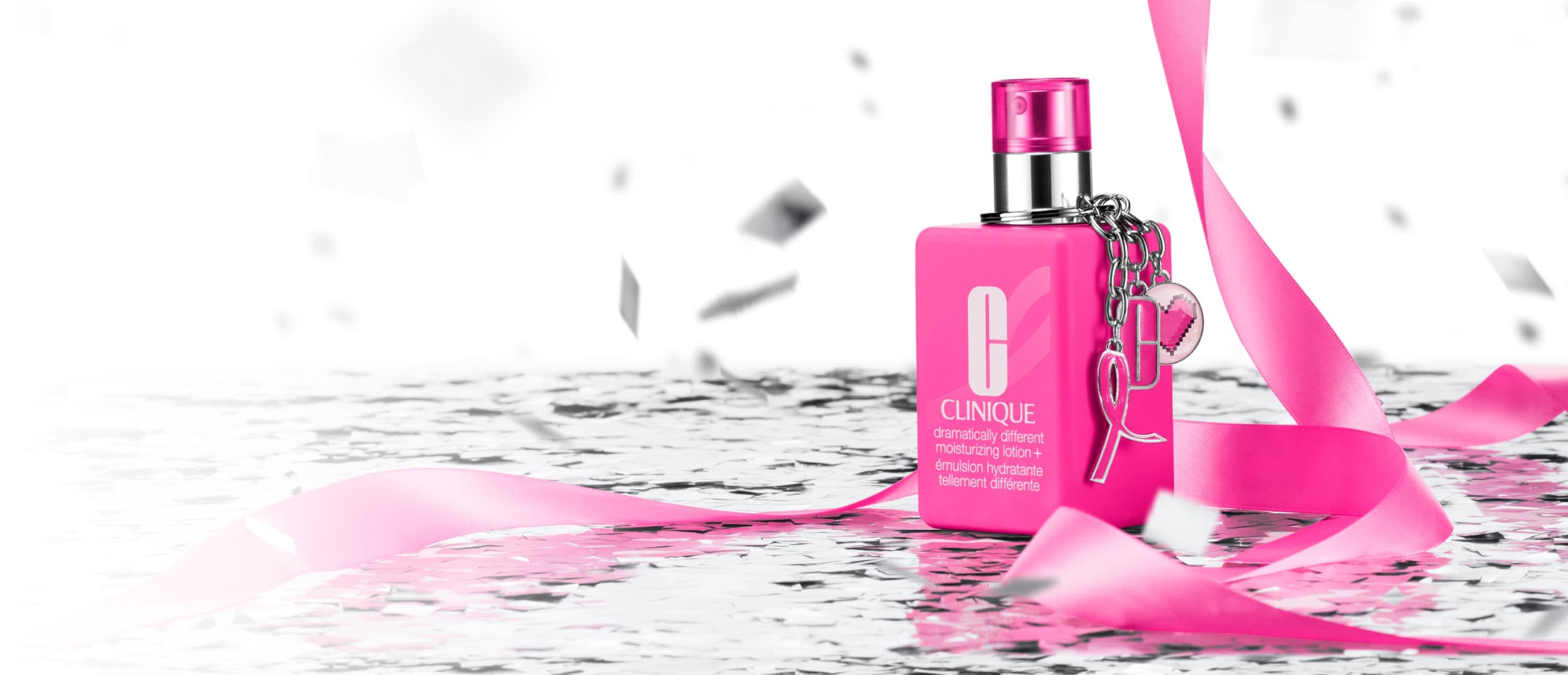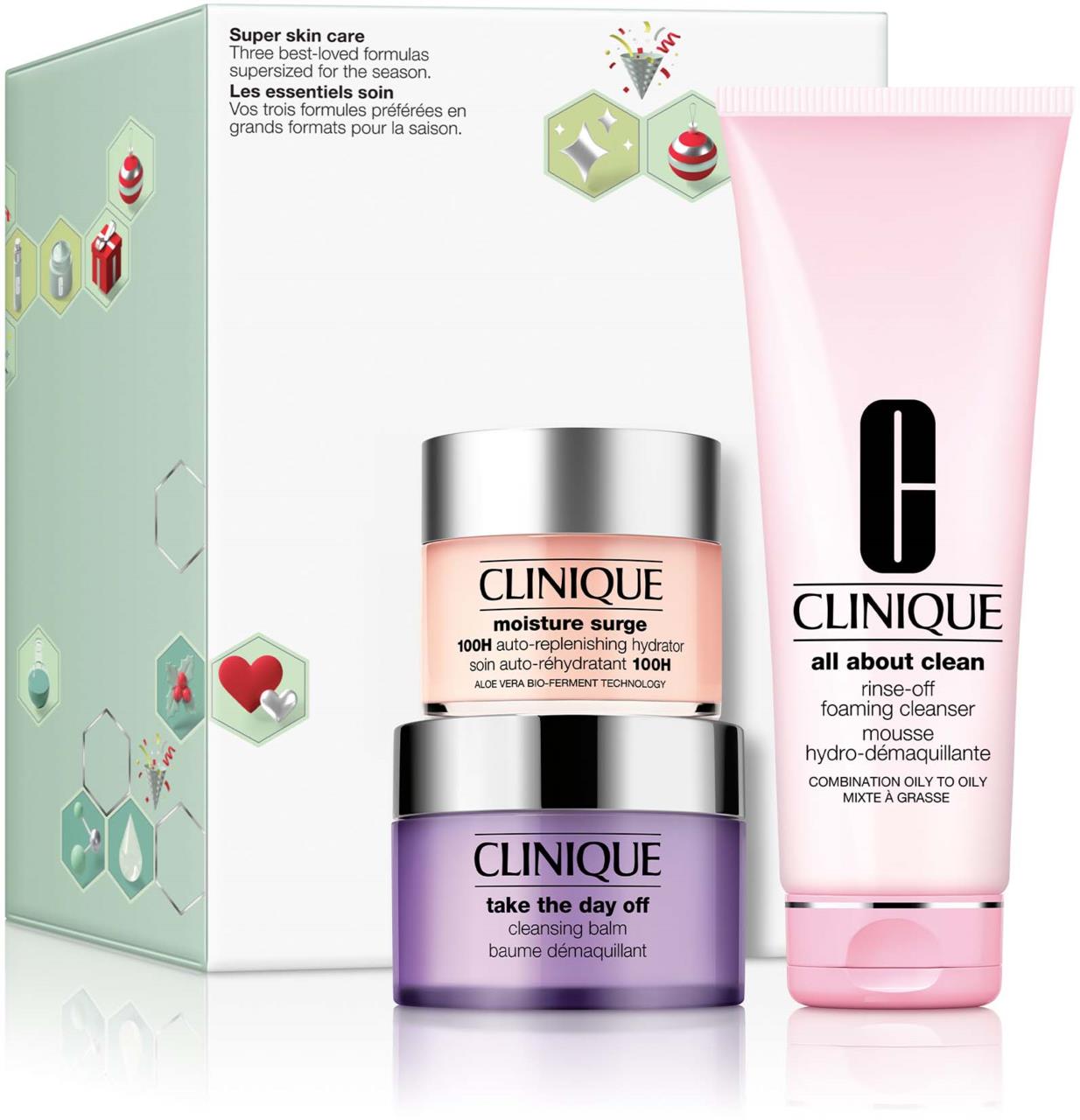Does Clinique Support Israel - A Closer Look
In a world where what we buy often feels like a vote, people are thinking more and more about where their favorite beauty brands stand. It's not just about getting a good product anymore; it's about making choices that feel right for us, reflecting what we believe. You know, like, every purchase can carry a bit of meaning beyond just the item itself.
There's been a lot of talk, especially online, about whether certain cosmetic companies, including well-known names like Clinique, have connections to or show support for Israel. This kind of conversation tends to pick up when global events unfold, and people start looking at the bigger picture of corporate actions. It's a bit like, consumers want to be sure their money aligns with their personal values, which is actually a pretty common thought these days.
For those who care deeply about these matters, understanding a brand's affiliations becomes a key part of their shopping habits. So, if you've been wondering about Clinique and its ties, or if you've seen discussions on social media asking "does Clinique support Israel," you're certainly not alone in that curiosity. Many people are asking similar questions about many different brands, too it's almost a regular thing now.
Table of Contents
- Understanding Brand Affiliations - Does Clinique Support Israel?
- The Larger Picture of Beauty Brands and Ethical Choices
- How Does Clinique Fit Into the Discussion About Israel?
- What Are the Connections Between Clinique and Israel?
- Consumer Concerns and the Call for Boycotts
- Examining the Ownership of Clinique and Its Ties
- What Does the Historical Context Tell Us About USA Support for Israel?
- Finding Alternatives When Does Clinique Support Israel Becomes a Concern
Understanding Brand Affiliations - Does Clinique Support Israel?
When people think about the products they use every day, particularly in something as personal as beauty and skincare, a lot of them are starting to look beyond just how well a product works. They want to know what the companies behind those products stand for. This is where questions about brand affiliations come into play, especially when it involves sensitive global issues. You might find yourself asking, for instance, "does Clinique support Israel?" This kind of question reflects a growing trend where consumers want their shopping habits to align with a broader sense of fairness and social responsibility, which is actually a pretty big shift in how we buy things.
There's a widespread conversation happening, particularly on social media, where people are pointing out different brands for their alleged support of Israel. This has led to many discussions about the ethical considerations involved in our daily purchases. For some, this isn't just a casual chat; it's a very real and important part of how they choose to spend their money. They feel that even something as simple as a beauty routine can carry a significant ethical weight, so, like, every choice matters.
This increased scrutiny means that companies are finding themselves under a spotlight they might not have expected before. Consumers are becoming more and more thoughtful, really looking into the moral positions of the brands they choose to bring into their lives. This can be a bit challenging for brands, as they navigate a world where their actions, or the actions of their owners, are subject to public examination. It's a new kind of accountability, you know, for sure.
The Larger Picture of Beauty Brands and Ethical Choices
The beauty industry, which is a really big and influential area of commerce, has seen a lot of changes in recent times. One of the most noticeable shifts is how brands are now expected to take a stand on various causes. It's no longer enough for a brand to simply offer good products; consumers want to see that these companies reflect certain values. This means that questions like "does Clinique support Israel" are becoming more common, as people consider the wider implications of their spending.
In the midst of ongoing conflicts, especially between Israel and Palestine, many brands have found themselves in a position where they either openly support one side or face questions about their affiliations. This has led to a significant increase in global discussions about boycotting certain products and supporting others. It's a very active conversation, with various groups and individuals urging people to make specific consumer choices based on these stances. So, it's pretty clear that people are paying attention.
For many, particularly within Muslim communities, there's been a strong encouragement from scholars and community leaders to avoid brands that are perceived to support Israel. This adds another layer to the ethical considerations that consumers are weighing. It's a clear call to action for some, showing how personal beliefs can directly influence market behavior. This movement, you know, really highlights the power of collective consumer action.
How Does Clinique Fit Into the Discussion About Israel?
When people talk about brands that might support Israel, Clinique often comes up in those conversations. It's one of several beauty companies, alongside others like Benefit Cosmetics and Maybelline, that have been mentioned in online discussions regarding their alleged support. This mention often prompts a lot of talk on social media about the ethical side of things, and what it means for consumers. So, like, it's not just a passing thought for many.
It's worth noting that while Clinique itself is not an Israeli company, its origins are in the United States. This connection is important because the government of the United States has, throughout its history, consistently shown support for Israel. This historical relationship between the two countries often leads people to consider the affiliations of American-based companies. It's a bit of a ripple effect, where a company's country of origin becomes part of the larger discussion about its stance, you know.
The alleged support of cosmetic companies for Israel's actions in Palestine serves as a reminder that even our personal beauty routines can have a bigger meaning. It encourages people to think about how their choices reflect the kind of world they hope to see. For many, this means making very deliberate decisions about which brands to support, and which ones to perhaps step away from. It's a way of making a statement with their money, basically.
What Are The Connections Between Clinique and Israel?
The primary connection that often brings Clinique into discussions about support for Israel stems from its ownership. Clinique is part of the Estee Lauder Companies, a very large and influential beauty group. This ownership structure is a key point for many consumers who are looking into the ethical stances of brands. It's not just about Clinique as a standalone brand, but about the bigger family it belongs to, which is actually pretty common for big companies.
Within the Estee Lauder ownership, particular attention is often drawn to Ronald Lauder. He is a prominent figure within the company's leadership, and he has been noted for holding what are described as strong Zionist views. Furthermore, he is said to provide financial and political support for what is often referred to as the Israeli occupation of Palestinian land. This personal stance of a key owner is a significant factor for those who are examining the brand's ethical footprint, so, like, it really matters to them.
This alleged support from Ronald Lauder, combined with his influential positions, can create ethical dilemmas for consumers. For some, aligning with certain viewpoints means making a conscious choice to refrain from supporting brands that are linked to those views, even indirectly through ownership. It's a situation where the actions and beliefs of a company's leadership can directly impact consumer loyalty and purchasing decisions, which is something you see more and more often.
Consumer Concerns and the Call for Boycotts
In the midst of the ongoing conflicts between Israel and Palestine, consumers around the world are actively looking for ways to show their solidarity. This often translates into making very specific purchasing choices. One common way to express this solidarity is through boycotts, where people choose to stop buying products from certain brands. This is why you'll often hear discussions asking "does Clinique support Israel" in the context of broader boycott movements.
The idea behind these boycotts is to use economic pressure to influence corporate behavior or to express disapproval of perceived affiliations. For many, it's about joining a movement to stand with Palestinians by avoiding goods from companies that are seen as supporting Israel. This kind of collective action can be very powerful, as it brings together many individual choices to create a larger impact. It's a way for people to feel like they are making a difference, even with their everyday shopping, you know.
Social media plays a really big part in these discussions, helping to highlight brands and spread awareness about their alleged connections. It's a space where people share information, personal stories, and recommendations for alternatives. This collective sharing helps to inform and mobilize consumers who want their beauty choices to reflect the world they wish to see. So, too it's almost a grassroots effort in many ways.
Examining the Ownership of Clinique and Its Ties
To really get a sense of Clinique's position in this discussion, it's helpful to look closely at its ownership. As we mentioned, Clinique is part of the Estee Lauder Companies. This parent company owns a whole range of well-known beauty brands, including MAC Cosmetics, which also faces scrutiny due to the Lauder family’s reported support for the Israeli occupation. This means that for some, a broader boycott might encompass all Estee Lauder products, not just Clinique, which is actually a pretty big deal.
The connections between the United States and Israel are extensive, involving many corporate ties. These explicit connections, along with the wide array of products involved, make it a complex situation for consumers. People are often looking for comprehensive lists of companies that are affiliated with or provide support to Israel, whether that support is moral or material. These lists aim to provide clarity for those who want to make informed decisions about their purchases, you know, which is understandable.
The question of whether cosmetic brands truly support Israel has become a very active topic amidst a global backlash against actions in Palestine. As movements like BDS (Boycott, Divestment, Sanctions) gain more traction, there's a growing need for consumers to question the stances of the brands they use. This means looking beyond the product itself and into the corporate structures and personal views of those at the top. It's a bit like pulling back the curtain to see what's really there.
What Does the Historical Context Tell Us About USA Support for Israel?
To fully grasp why an American-owned brand like Clinique might be linked to discussions about support for Israel, it helps to understand the historical relationship between the United States and Israel. History shows that the United States' support for Israel is a commitment that goes back a long way, dating back to the very beginning of the Jewish state in 1947. This long-standing relationship forms a backdrop for many current discussions.
The government of the USA has consistently shown its support for Israel over many decades. This includes various forms of assistance and diplomatic backing. Because Clinique is an American company, its nationality often becomes a part of the conversation for consumers who are looking at brand affiliations. It's a very deep-rooted connection that shapes how some people perceive American businesses in general, which is, like, a significant point.
This historical context is important because it provides a framework for understanding the broader corporate ties between the two nations. It helps to explain why, even if a company itself doesn't have direct operations in Israel, its country of origin and its owners' affiliations can still lead to questions about its stance. It's a complex web of relationships, where national policy and corporate ownership can become intertwined in the minds of consumers, you know, for sure.
Finding Alternatives When Does Clinique Support Israel Becomes a Concern
For individuals who have been using brands like Clinique for a long time and have found them effective, the realization that these brands might support causes they disagree with can be a real dilemma. Imagine someone who has relied on Clinique skincare for years, finding it works really well for their skin, but then learns about the alleged support for Israel. This can prompt them to start looking for other options, even if it means changing a long-standing routine. It's a bit like having to rethink something you've always taken for granted, which can be pretty tough.
This search for alternatives often leads people to ask for recommendations for new products, whether it's face wash, acne spot treatments, or moisturizers. They want to find products that not only work well but also align with their personal ethical stance. It highlights how deeply personal these choices can be, as consumers try to balance their practical needs with their moral convictions. So, it's not just about swapping one product for another; it's about making a choice that feels right in a bigger sense, you know.
The beauty industry has indeed taken on a new dimension in recent years, with a growing number of brands openly expressing their support for various causes. This makes it both easier and more challenging for consumers. Easier, because there's more information available; harder, because there are more layers to consider beyond just product quality and price. Ultimately, it encourages everyone to be more thoughtful about where their money goes and what their beauty choices truly reflect, which is actually a pretty powerful idea.
To recap, the question "does Clinique support Israel" arises from several key points. It's rooted in the ownership of Clinique by Estee Lauder, a company whose leadership, especially Ronald Lauder, is noted for holding strong Zionist views and providing support to Israel. The historical and ongoing support of the United States government for Israel also plays a part, as Clinique is an American-based company. These factors, combined with a broader global movement of ethical consumerism and boycotts amidst the Israel-Palestine conflict, lead consumers to scrutinize their beauty choices. Many people are seeking to align their purchases with their personal values, prompting discussions on social media and a search for alternative brands that reflect their desired world.

Support The Breast Cancer Research Foundation | Clinique | Clinique

Clinique Skin Care Jumbo | lyko.com

Israel Support Package -Soldier | Jewish National Fund-USA